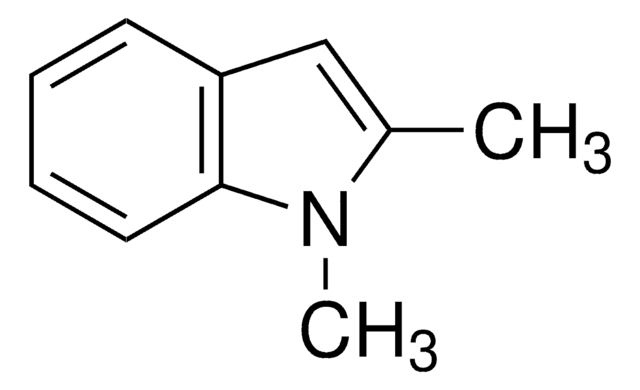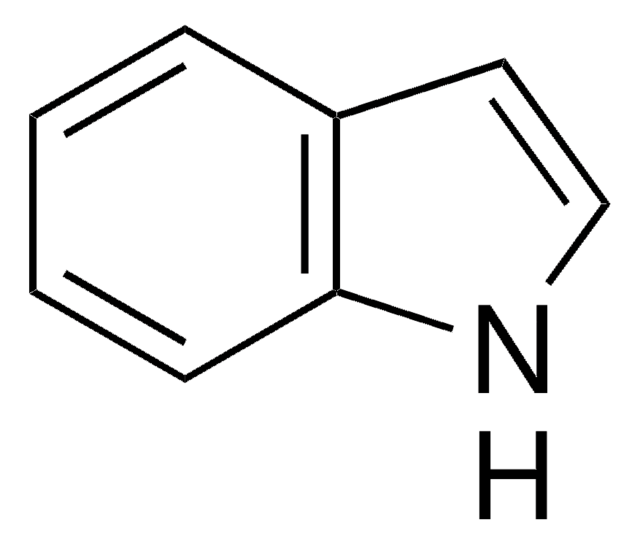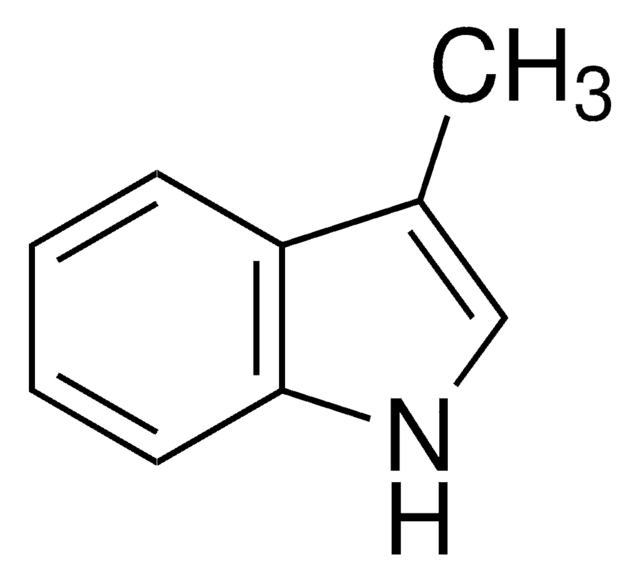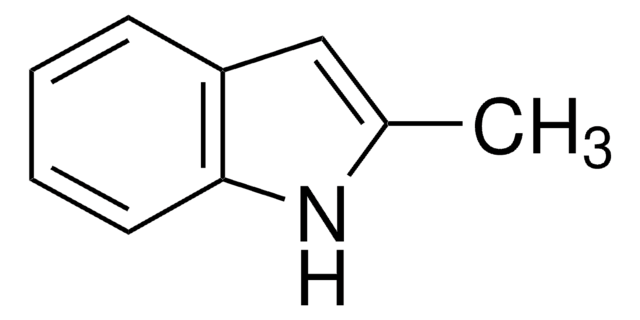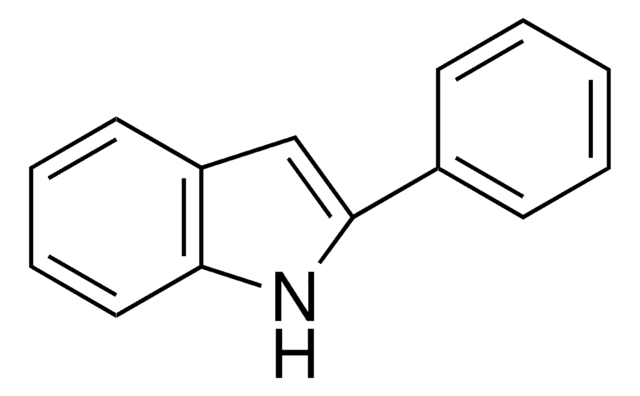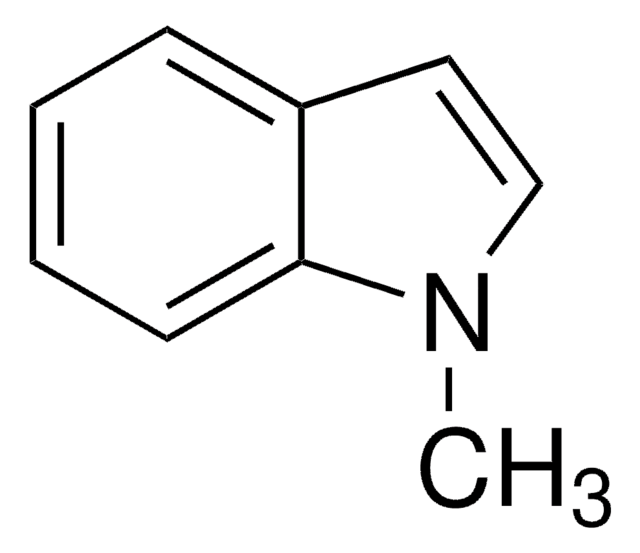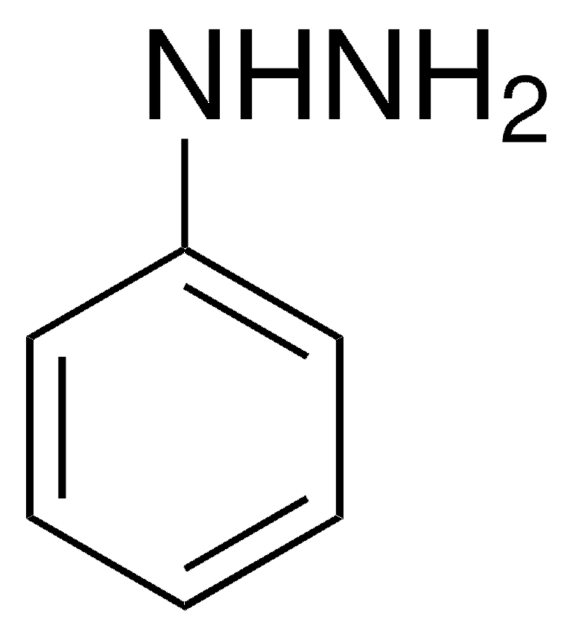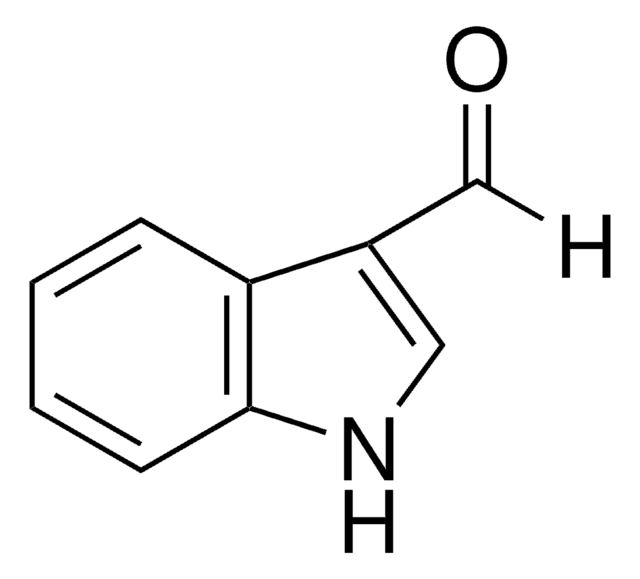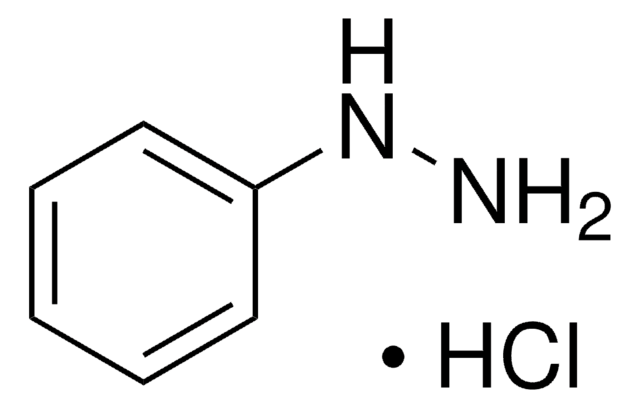120812
2,3-Dimethylindol
≥97%
Synonym(e):
NSC 24936
Anmeldenzur Ansicht organisationsspezifischer und vertraglich vereinbarter Preise
Alle Fotos(1)
About This Item
Empirische Formel (Hill-System):
C10H11N
CAS-Nummer:
Molekulargewicht:
145.20
EG-Nummer:
MDL-Nummer:
UNSPSC-Code:
12352100
PubChem Substanz-ID:
NACRES:
NA.22
Empfohlene Produkte
Qualitätsniveau
Assay
≥97%
Form
solid
bp
285 °C (lit.)
mp (Schmelzpunkt)
105-107 °C (lit.)
SMILES String
Cc1[nH]c2ccccc2c1C
InChI
1S/C10H11N/c1-7-8(2)11-10-6-4-3-5-9(7)10/h3-6,11H,1-2H3
InChIKey
PYFVEIDRTLBMHG-UHFFFAOYSA-N
Anwendung
2,3-Dimethylindole has been used to study the mechanism of oxidation of 2,3-dimethylindole by peroxodisulphate and peroxomonosulphate anions to 2-methylindole-2-carbaldehyde. It has been used to study the behaviour of methylindoles in the agilent multimode ion source by atmospheric pressure chemical ionization mass spectrometry.
Reactant for preparation of:
Reactant for:
- Bis(indolyl)methane derivatives
- Potent opioid receptor agonists
- Photorefractive materials
- Prodrugs of the cyclin-dependent kinase (CDK) inhibitor Alsterpaullone
- Dopamine receptors 2/4 (D2/D4) antagonists
- Useful azaspirocyclic building blocks
Reactant for:
- Baylis-Hillman reactions
- Photosensitized Diels-Alder reactions
- Photoinduced electron transfer reactions
Lagerklassenschlüssel
11 - Combustible Solids
WGK
WGK 3
Flammpunkt (°F)
Not applicable
Flammpunkt (°C)
Not applicable
Persönliche Schutzausrüstung
Eyeshields, Gloves, type N95 (US)
Hier finden Sie alle aktuellen Versionen:
Besitzen Sie dieses Produkt bereits?
In der Dokumentenbibliothek finden Sie die Dokumentation zu den Produkten, die Sie kürzlich erworben haben.
Kunden haben sich ebenfalls angesehen
A I Novaira et al.
Journal of photochemistry and photobiology. B, Biology, 60(1), 25-31 (2001-06-02)
The quenching of anthracene fluorescence by indole, 1,2-dimethylindole (DMI), tryptophan (Trp) and indole 3-acetic acid (IAA) in palmitoyloleoylphosphatidylcholine (POPC) lipid bilayers was investigated. A very efficient quenching of the anthracene fluorescence in the lipid membrane is observed. Stern-Volmer plots are
Formation of the Ions of Methylindoles in APCI Mass Spectrometry.
Liu DQ and Sun M.
ISRN Spectroscopy, 2012 (2012)
Direct evidence on the mechanism of the oxidation of 2, 3-dimethylindole by inorganic peroxo anions.
Balon M, et al.
The Journal of Organic Chemistry, 58(26), 7469-7473 (1993)
Resolution of heterogeneous fluorescence from proteins and aromatic amino acids by phase-sensitive detection of fluorescence.
J R Lakowicz et al.
The Journal of biological chemistry, 256(12), 6348-6353 (1981-06-25)
Zhengyin Yan et al.
Analytical chemistry, 80(16), 6410-6422 (2008-07-23)
Constant neutral loss (CNL) and precursor ion (PI) scan have been widely used for the in vitro screening of glutathione conjugates derived from reactive metabolites, but these two methods are only applicable to triple quadrupole or hybrid triple quadrupole mass
Unser Team von Wissenschaftlern verfügt über Erfahrung in allen Forschungsbereichen einschließlich Life Science, Materialwissenschaften, chemischer Synthese, Chromatographie, Analytik und vielen mehr..
Setzen Sie sich mit dem technischen Dienst in Verbindung.